Sent down from Cambridge in 1755 after fighting a duel amid false accusations of cheating at cards, Alan Carey is sent to the colony of New York by his father the Earl to look into his estates in the Mohawk Valley.
It’s a life-changing experience. Alan, already a physical bear of a man, grows in moral stature as he deals with the problem of a dishonest bailiff, learns the ways of the virgin forest, overcomes hostile Indians and, with his newly acquired knowledge of the terrain, is able to render invaluable service to General Wolfe during the capture of Quebec.
About Ronald Welch and the Carey Novels
Ronald Welch’s Carey novels, written between 1954 and 1972, follow the fortunes of the same family from their involvement in the Crusades to their service in the First World War. Grippingly plotted and scrupulously researched, together they join up the dots of English history in a remarkably vivid and human way.
Welch was a historian who served as a Tank Corps officer in the Second World War and in 1947 became Headmaster of Okehampton Grammar School in Devon. He was, by all accounts, an inspiring teacher, and he certainly knew how to bring history alive for younger readers. You can’t finish a Welch book without having grasped such precise details as the construction of a crusader’s armour and why it was so designed, or why the longbow was crucial to the English victory at the Battle of Crécy. Most importantly they’re brilliant reads – fast-paced, colourful and imaginative, with entirely believable central characters. The Careys are a distinguished Welsh landowning family and are involved in all the great events of their times, from the plots against Elizabeth I and the Civil War to the Peninsular War, the Crimea and the Indian Mutiny.
The original editions, published by Oxford University Press and illustrated by some of the best book illustrators of their day, are now almost impossible to find and fetch prohibitive prices. We’re delighted to make these wonderful books available again, with their original illustrations, in an elegantly designed and highly collectable series.
Learning from the Wilderness
You should never camp in a ravine. Look for higher ground, and a windbreak – a fallen tree is fine, but rocks are the best. Gather balsam wood for bedding, and use your tomahawk to cut firewood...
Read moreWolf Hall for kids: Why Ronald Welch’s novels will help your children fall in love with history
Ronald Welch, a tank commander turned schoolmaster, is one of the 20th century’s most underrated children’s writers. Like Hilary Mantel, he understood that what makes a lost epoch stick in your...
Read more




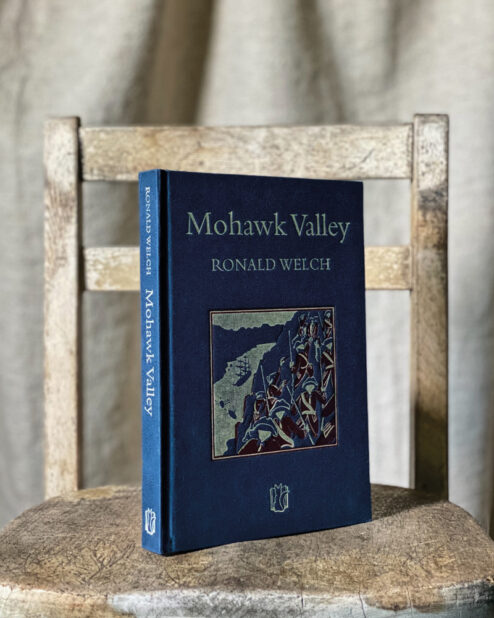
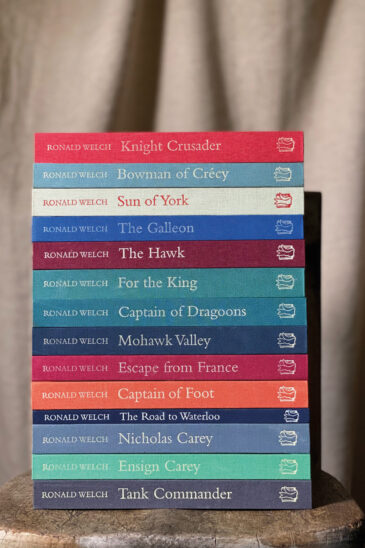
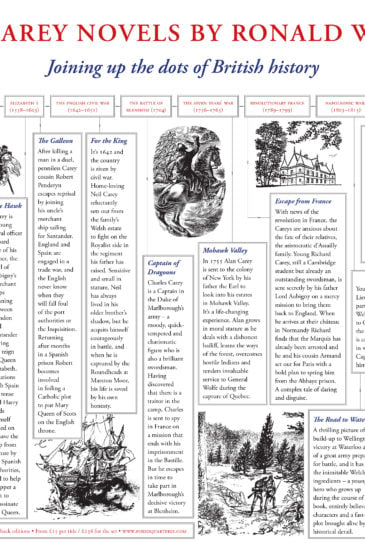
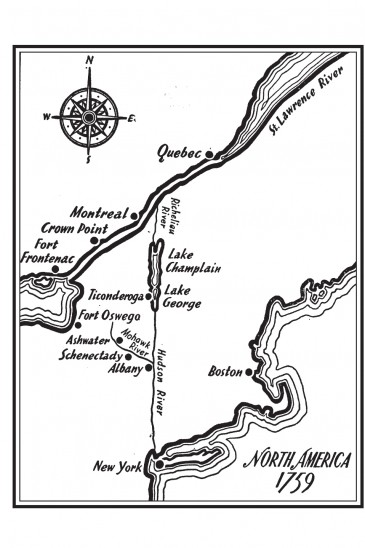
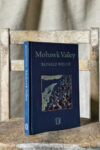
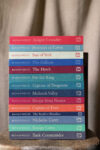
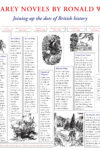
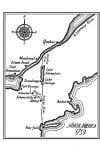
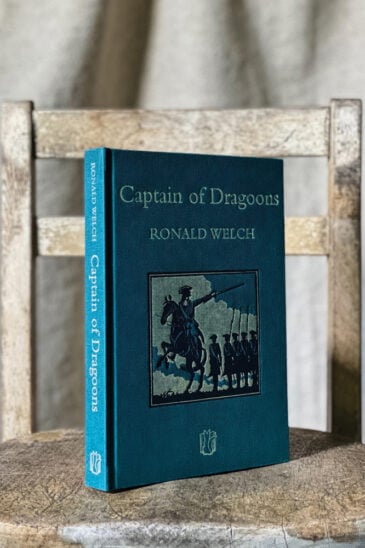
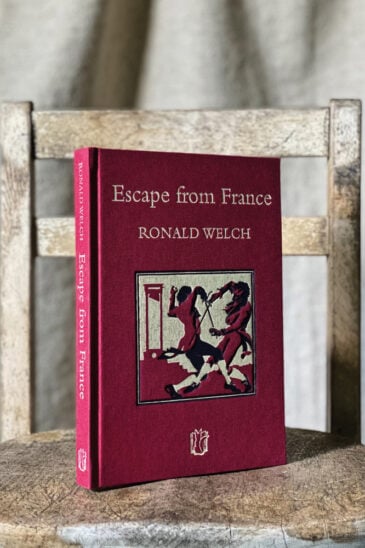
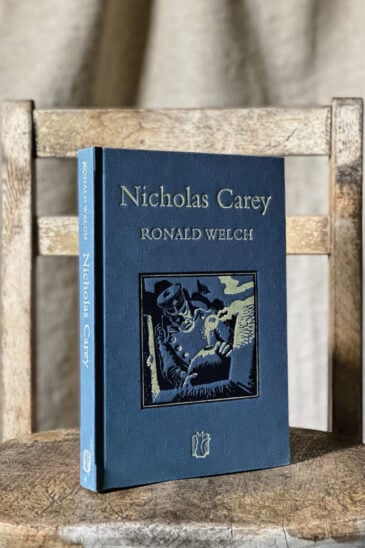
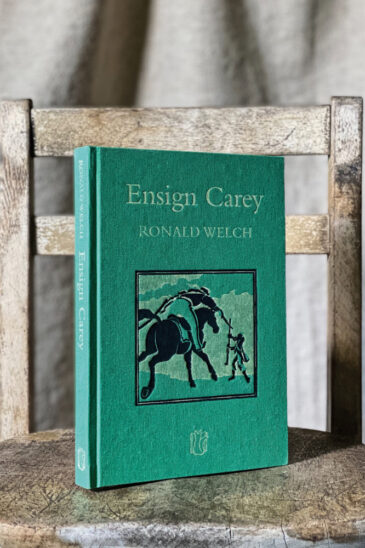
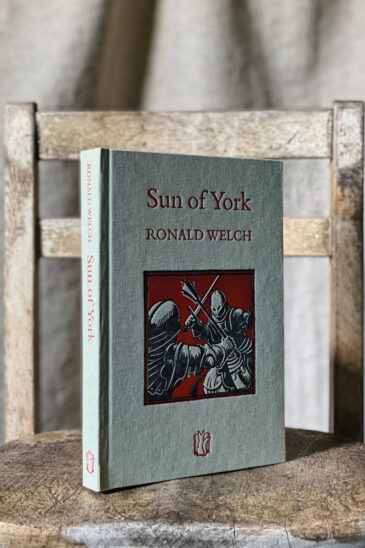
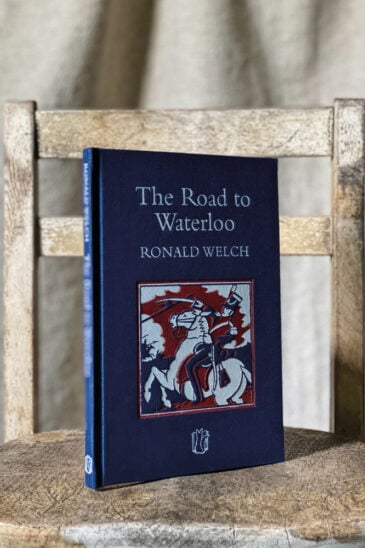
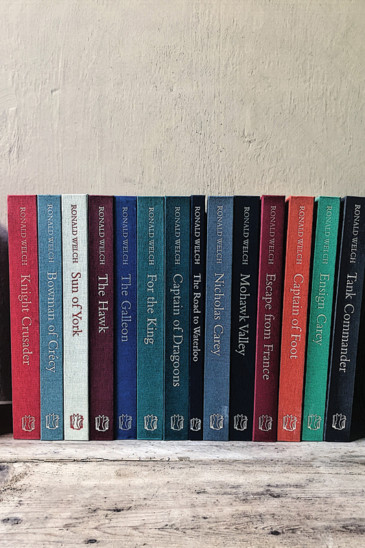
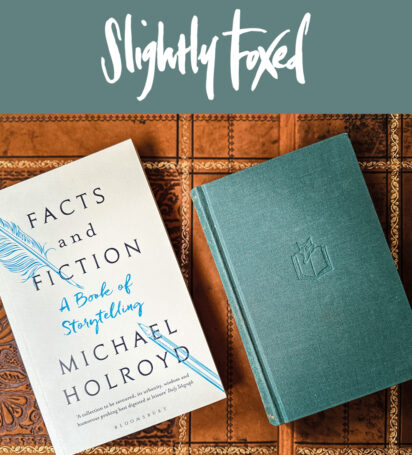
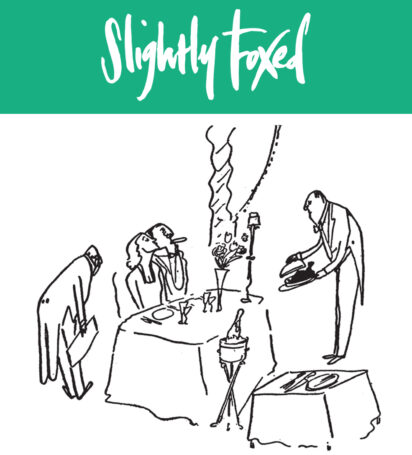
1755. When young Alan Carey is wrongfully accused of cheating at cards, his father, Lord Aubigny, sends him to Ashwater, the 3000-acre family estate in America. It’s on the Mohawk River north of New York, and its cash crop is furs. But it’s doing suspiciously badly and needs sorting out.
This is a coming of age book: Alan is large, clumsy and hot-tempered. He also lacks self-confidence. But he’s willing to learn; on board ship, he learns to climb the rigging and does gun drill with the crew – useful when a French privateer attacks. Once in Boston, he’s introduced to backwoodsman, Jake Winter, who will teach him how to survive in the forest. But Jake does not think much of this young nobleman. Can Alan earn his respect? And does Alan have what it takes to dismiss the dishonest Ashwater bailiff? The story moves on to General Wolfe and the British army’s attack on Quebec; if they can capture it, it will spell death to the French hold on Canada. Naturally, Alan is in the thick of it.
Having visited Quebec and seen the sheer cliff face of the Heights of Abraham scaled by Wolfe and 5000 men in 1759, I know that Ronald Welch has done his research. His account of early British history in America and Canada is thrilling – even if part of one doesn’t approve (Alan’s intention to fell the entire forest, for example). I also enjoyed the way that the tragic story of Duncan Campbell meeting his ghostly nemesis at Ticonderoga – celebrated in R. L. Stevenson’s poem – gets a look in. And William Stobbs’ splendid illustrations deserve a mention, too.
Boys of ten plus should enjoy Alan’s deeds of derring-do, and, at the same time, learn about a neglected bit of our national story.
In Mohawk Valley, young Alan Carey is forced to leave Cambridge in disgrace after being accused of cheating at cards. Expelled from the college and a pariah among his erstwhile friends, Alan heads back to the ancestral home at Llanstephan to face his father, the formidable old Charles Carey familiar to readers from Captain of Dragoons. The Earl, together with his friend Mr William Pitt, comes up with a plan: ship Alan across the Atlantic to make his fortune and repair his reputation taking care of the Earl’s properties on the American frontier. Once in America, Alan finds his hands full learning woodcraft and dealing with untrustworthy stewards. But not all is peaceful in the backwoods, and political maneuverings in London and Paris threaten to bring war on the frontier.
You guessed it: this is the book about the French and Indian War. Overall, I have to say that this is my least favourite of the Carey Family series so far. The plot was more episodic than most of Welch’s other books, and I didn’t at all care for the portrayal of one of the villains as a Scripture-quoting fanatic who first cheats and then attempts to murder our hero. The New England Puritans had their oddities, especially as time went on, but as a general rule they were sincere, law-abiding people, and I felt that by making their sole representative in this book a villain, Welch was trying to say something about the Puritans, and sincere religious faith, as a whole.
Still, there was plenty to like about Mohawk Valley. Ronald Welch wrote for young people, especially young boys, but I usually find his books full of thoughtfulness on topics of maturity and manhood. One thing that I think all his books have in common is that they challenge their young heroes, and through them the readers, with difficult decisions and tasks. And one of the reasons why this is so challenging to the reader is that Welch does a very good job of showing how difficult his heroes find their tasks: he writes sympathetically to their fears and doubts in such a way that he seems sympathetic to the fears and doubts of the reader too.
So, in Mohawk Valley, Alan Carey faces nearly the most depressing fate for any young member of the English nobility: when he elects to fight a duel to clear his name, his nerves fail him and he drops his pistol, convincing everyone present that he’s not just a cheat but also a coward. Alan heads home convinced that he’s shamed not just himself but also his family name and his swashbuckling old father. The rest of the book is about how he rediscovers his courage and self-respect, even as he relinquishes his status as an English nobleman for the harsher and more egalitarian life of an American backwoodsman. There’s more than one way of being brave, and more than one way of being noble, the book seems to say: if you fail at one thing, pick yourself up and try another. I can imagine that being a fairly encouraging thing for a young man to read.
The last third or so of the book is taken up with the French and Indian War, with fairly detailed accounts of the battle of Ticonderoga and the fall of Quebec. As usual, Welch writes about wars without criticising the diplomatic decisions that cause them, but his battle scenes are always vivid, visceral and intensely serious.
Mohawk Valley may not be my favourite Welch book, but it contains all the things that make the rest of the series worth reading: historical detail, military realism, and sympathetic characters facing tough decisions. The series is currently in print in beautiful limited editions available from Slightly Foxed – particularly recommended for home educators!